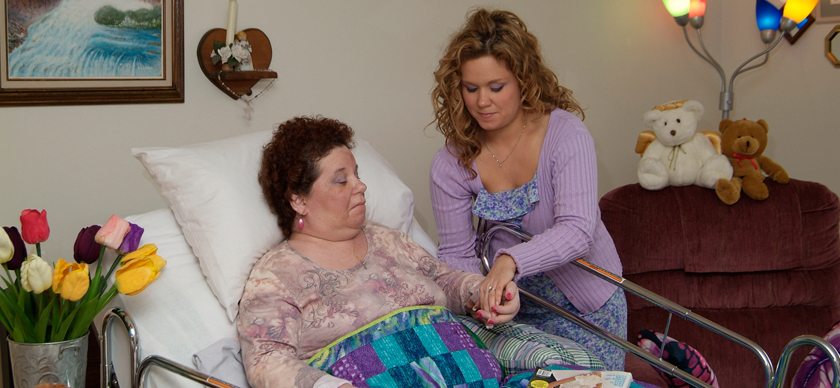Hospice care is available to you and your loved one 24 hours a day, 7 days a week.
Hospice Alliance cares for patients “wherever they call home” which is one of the foundation blocks of the hospice philosophy of care. This principle is supported by studies showing that as many as 90% of people facing end-of-life would prefer to spend their last days where they are most comfortable, typically the place they call home. At Hospice Alliance, we understand that not everyone has the ability to spend their last days at home, and provide an alternative home-like setting.
Hospice Alliance provides care and support for patients in the following settings:
- In a patient’s home or in the home of a patient’s loved one, surrounded by the people and things they love. This choice allows family and friends to support their loved one in comfort and privacy.
- In long-term care and assisted living facilities, such as nursing homes, senior apartments, and group homes. Hospice Alliance professionals complement the care already provided by staff in these settings.
- In Hospice Alliance’s Hospice House, where we offer an option for 24/7 care in a home-like setting for those who, for whatever reason, cannot remain in their own home.
Circles of Care
Each patient is encircled in the care of a dedicated team:
- Hospice care physician
- The patient’s primary care physician
- Registered nurse circle manager
- Registered nurse case manager
- Medical social workers
- Certified nursing assistants
- Chaplain/Spiritual counselors
- Certified specialized therapist (as needed)
- Grief counselors
- Volunteers (as needed)
- On call registered nurse available 24/7
While the entire team is available to care for and support the patient and his or her family, the patient is at the center, directing care and support. A patient can choose to forgo the services of some members of the team. (For example, if a patient has a relationship with their parish pastor, he or she may decline the services of our chaplain. Or if a patient has a large family and the caregiver has a large support structure a volunteer to provide respite care may not be necessary.)


